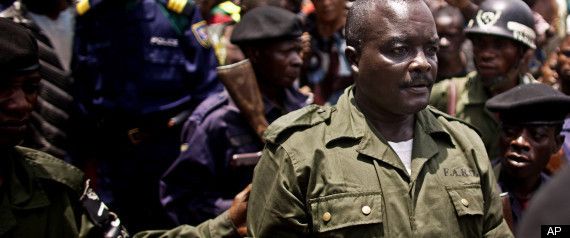With all the news of uprisings—Egypt, Tunisia, Libya—I've been rocketed back in time and space to the Congo, to Vietnam, where I got some first-hand experiences of what it's like when people make such dramatic moves. And what it's like to witness your own government making the wrong moves.
I was a bored Foreign Service wife in the Belgian Congo when the Belgians allowed the first election of "burgomeisters" in Leopoldville, the city that's now called Kinshasa. One of these newly elected representatives of the vast black majority in that city had served in the British Army in India, spoke excellent English, and wanted his fellow Congolese burgomeisters to learn that language. At a reception given by the US Consulate, he was told that I'd taught English in Japan; he asked me to teach the burgomeisters.
I said yes immediately. It was a chance to make real contact with Congolese citizens— the norm for resident foreigners was to know only their own houseboys and cooks. The next morning, my startled husband was called into the US Consul General's office and told that the Belgian Governor General had just called to say that if there were such a class, the entire US delegation would be on the next plane out of the country.
First I wondered how the hell the Governor General knew about it already. Then I thought that getting kicked out was a great idea. We would leave in a blaze of glory, the descendants of revolutionaries who had thrown out their own colonial masters and who were now siding with the true owners of this land, against their colonial masters. It was inevitable that the Congolese would rise up against the Belgians; when they did, the US could return and be welcomed as exemplars of a revolution that had succeeded, ready to help an independent Congo succeed as well.
My career-conscious husband was staring at me, appalled. So I tried a capitalist approach. "Look at a map of the world. Belgium is a flyspeck. What have they got? Fried potatoes. The Congo's bigger than Alaska and California combined. What have they got? Copper, uranium, tungsten, gold. Which country should be more important to us?"
But the status quo was the US alliance with Belgium; NATO HQ was in Belgium. The Cold War was on and the US government was committed to stable supply lines of raw materials; the Belgians kept all those minerals moving out of the Congo with no disruptions and what did a 20-something American woman know about any of this realpolitik? No matter what injustices the Belgians forced on the Congolese, the US stood with the prevailing power. And a 50s-era wife would keep quiet rather than get her husband branded as having a crazy spouse.
Living in Saigon in 1960, I got a letter from a friend still in the Congo, describing the arrival of an Ilyushin jet filled with Soviet diplomats, greeted in the newly independent nation by cheering throngs and a brass band. The Soviets were the descendants of revolutionaries who had overthrown their masters. They were welcome. And the US had lost its chance to be something more than just another power that didn't honor people's hopes for freedom.
In Vietnam we were backing yet another despised regime. President Ngo Dinh Diem and his family were hated by most Vietnamese, but he was our man and in the name of stability, we were again standing pat.
On a sunny November morning our toddler started singing, "Boom boom, maman, boom boom." (French was his first language.) The booms were not the usual festive firecrackers; there was a machine-gun emplacement on the corner. A friend was calling to us outside our gate. We hurried him inside where he told us that his morning radio show had just been commandeered by paratroopers who were taking over the city. Explosions were frequent and close. We made a thick igloo of mattresses behind bolted shutters and listened in that shelter to the radio. A Vietnamese neighbor joined us and translated when Diem's voice cut in, promising reforms if the paratroopers would just stand down. Instantly our neighbor, who worked for Diem, was shouting at the radio, "Don't listen to the bastard! He's lying!"
He was indeed. The paratroopers stood down and reprisals began, not reforms. On my job as the English editor of Viet Nam Presse, I read raw reports of deaths, imprisonments, and executions, while the finished releases claimed that all had been peacefully resolved. (I passed the raw information to ONI, our Office of Naval Intelligence.) The US ambassador expressed relief that Diem had kept control of the situation and the nation. Stability was what mattered.
Through those dramas, and so many more over the years, right up to the ones we're watching now, I've kept believing that our national interests would be better served not by an automatic aligning with power and stability but with people rising up to govern themselves as they see fit, no matter what may follow those revolutions. Indeed, throughout history, many have ended badly.
But we're the descendants of those fellows who pledged their lives, their fortunes and their sacred honor to the cause of freedom, to life, liberty and the pursuit of happiness. Our history, our culture and our citizens have admirers and friends all over the world while our government and its policies are hated, given our come-down from champions of liberty to protectors of the status quo. All humans have the right to try for freedom, just as we did.
That long-ago young woman in the Congo was right about how the US should deal with human aspirations, both then and now. So from one citizen of a nation that chose revolution to all those who choose now to take the same perilous path, here's one American, older now and still on the side of freedom, who salutes you.

